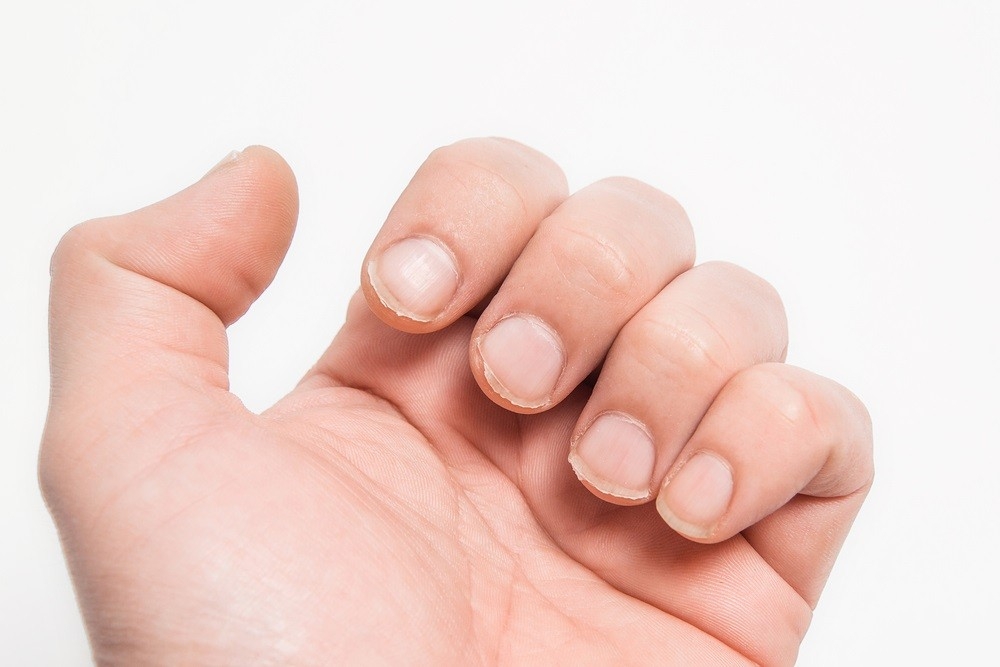Contents
- Why do people bite their fingernails and cuticles?
- Nail Biting
- Why Does Biting Your Nails Increase Your Risk of Getting Bacterial and Fungal Infections?
- Should I Be Concerned About a Vitamin Deficiency If I Have Hangnails?
- How Does Biting Your Nails Contribute to Influenza and Colds?
- The Dangers of Biting Your Nails and How It Can Affect Your Teeth

The habit of biting one’s nails, also known as onychophagia, is quite frequent and affects up to thirty percent of the population. However, if you bite your nails on a regular basis, you run the risk of causing damage to both your nails and the skin around them. In addition to this, putting your fingers in your mouth on a daily basis raises the risk that bacteria will spread throughout your body. Proper nail care with Maby blog.
The encouraging news is that giving up smoking is doable for the vast majority of people. To get you started on breaking the habit of biting your nails, here is the information you need to know:
Why do people bite their fingernails and cuticles?
The majority of people start biting their nails sometime between the ages of 3 and 4 when they are still children. The habit of chewing one’s nails is something that many youngsters outgrow. Some youngsters who have the practice of sucking their thumb or fingers may subsequently develop the habit of biting their nails instead of sucking their thumb or fingers. Biting the nails can start at any age, even during puberty and maturity. However, a sudden onset of this behavior can also be a side effect of some medications.
Biting one’s nails is perhaps one of the most common habits among a large number of people. In point of fact, some of you might even do it while you’re watching your favorite show on television or reading emails. Even if you don’t believe it poses any threat, there are a few good reasons why you should steer clear of it.
To begin, the nail bed is a breeding ground for a wide variety of bacteria. Enterobacteriaceae is a family of bacteria that includes E. coli and salmonella, and it has a propensity to grow in the warm cleft that exists beneath the tips of your fingernails. When you bite your nails, germs from your nails will make their way into your mouth and stomach, where they have the potential to develop a gastrointestinal infection. Symptoms of this infection include abdominal pain and diarrhea.
People who nibble their nails frequently or for an extended period of time run the risk of contracting an infection known as paronychia. It’s possible that bacteria strains could enter your fingertips if they have any abrasions or breaks in their skin. Both conditions result in redness, swelling, and the accumulation of pus under and around the nail. This pus should be drained through surgery, and the condition can be treated with antifungal agents or antibiotics.
Nail Biting
The behavior of biting one’s nails, also known as onychophagia or onychophagy, is considered to be an oral-compulsive disorder. Sometimes, it is referred to as a type of parafunctional activity, which is the common use of the mouth for an activity other than drinking, speaking, or eating. One example of this type of activity is lip-smacking.
While biting one’s nails is a common behavior, an impulse control disorder can be diagnosed in those who engage in the behavior. However, not every case of biting the nails constitutes a pathological condition. Sometimes it might be difficult to tell the difference between healthy conduct and unhealthy obsessions. Maby gives you tips on how to break the habit of biting your nails with items costing less than $20.
Why Does Biting Your Nails Increase Your Risk of Getting Bacterial and Fungal Infections?
When you get a manicure, the manicurist will remove gunk from under your fingernails. If you’ve ever gotten a manicure, you’ve probably seen this gunk. What you are seeing is what is visible to the naked eye. But try to picture the bacteria that are invisible to the naked eye.
Should I Be Concerned About a Vitamin Deficiency If I Have Hangnails?
Coryneform, Strep, and Staphylococcus bacteria are the most frequent types of dangerous microorganisms that can be found hiding under fingernails. These bacteria can enter the body through cracks in the epidermis, and you can accidentally consume them when you bite your nails. If it does not serve as an effective deterrent, consider the possibility that you have ringworm in your nail tissues because you bite your nails.
How Does Biting Your Nails Contribute to Influenza and Colds?
At any given time, there are more than 200 different viruses that might cause the common cold. Even if you have a compromised immune system or are exposed to someone who is sick, you may still lower your chances of catching a virus by avoiding putting your hands in your mouth. This will help you avoid spreading the virus to other people. The human body is a breeding ground for viruses that can lead to the flu. Therefore, it is important to regularly wash your hands with water and soap and refrain from biting your fingernails or toenails.
The Dangers of Biting Your Nails and How It Can Affect Your Teeth
Biting the nails can also be harmful to the gums and teeth. Biting the nails can cause front teeth to become chipped, cracked, or worn down, and can also lead to painful gums and damage to the gum tissue. If you believe that using a mouth guard can assist you in kicking your habit of biting your fingernails, talk to your dentist about ways to lessen the potential damage it will cause to your teeth.
